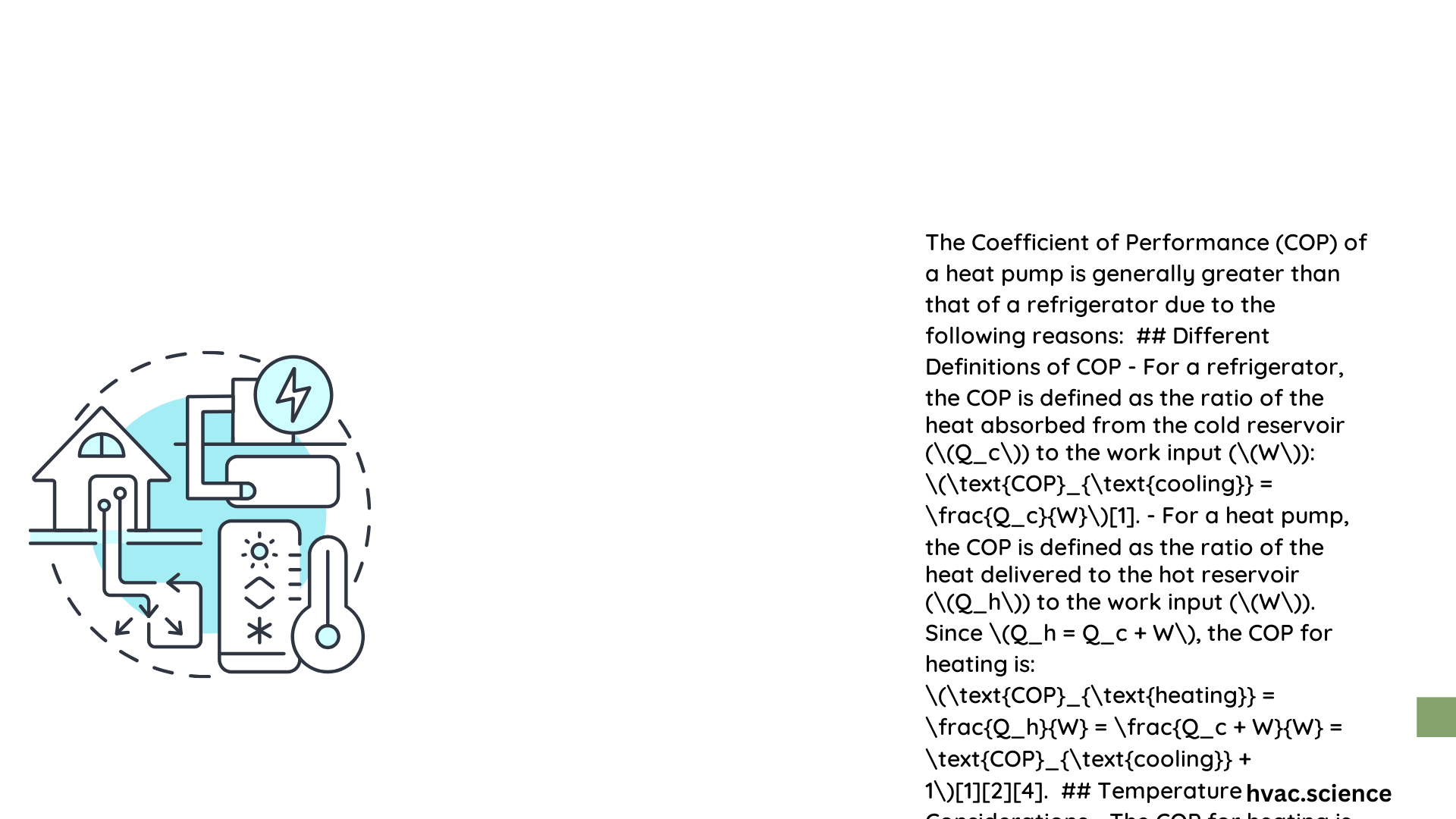Heat pumps demonstrate superior energy performance through their unique thermodynamic cycle, leveraging environmental heat transfer with remarkable efficiency. By extracting heat from lower-temperature sources and transferring it to higher-temperature destinations, heat pumps achieve significantly higher Coefficient of Performance (COP) compared to traditional refrigeration systems, making them a more sustainable and cost-effective heating solution.
What Makes Heat Pump COP Superior?
How Do Thermodynamic Cycles Influence Performance?
Heat pumps operate on a reversed Carnot cycle with distinctive characteristics that fundamentally differentiate them from refrigerators. The key distinguishing factor lies in their heat transfer mechanism and energy utilization strategy.
Comparative COP Formulas
| System Type | COP Formula | Typical Range |
|---|---|---|
| Heat Pump | [COP_{\text{heating}} = \frac{Q_H}{W} = \frac{T_H}{T_H – T_L}] | 3 – 5 |
| Refrigerator | [COP_{\text{cooling}} = \frac{Q_L}{W} = \frac{T_L}{T_H – T_L}] | 2 – 4 |
What Factors Contribute to Higher Heat Pump Efficiency?
- Temperature Differential Advantages
- Smaller temperature differences enhance heat pump performance
- Ground-source heat pumps benefit from stable underground temperatures
-
More flexible heat source adaptation
-
Energy Transfer Mechanisms
- Leverage existing environmental heat
- Require less work input for heat transfer
- Utilize multiple heat sources (air, water, ground)
Why Do Heat Pumps Consume Less Energy?
Heat pumps consume significantly less energy by transferring existing heat rather than generating it from scratch. Their ability to extract heat from low-temperature environments and upgrade it to usable temperatures makes them inherently more efficient.
Practical Efficiency Demonstration
Consider a heat pump using 1,000 watts of electricity to produce 4,000 watts of heat:
[
\text{COP}_{\text{heating}} = \frac{4,000 \text{ watts}}{1,000 \text{ watts}} = 4.0
]
How Do Compressor and Refrigerant Properties Impact Performance?
- Advanced compressor technologies
- Optimized refrigerant selection
- Sophisticated system design
- Minimized energy losses during compression
What Are Real-World Efficiency Implications?
- Energy Savings: 4x more heat produced per unit of electricity
- Cost Reduction: Lower operational expenses
- Environmental Benefits: Reduced carbon footprint
Can Temperature Conditions Affect COP?
Temperature plays a crucial role in determining heat pump performance. Under European standard test conditions ((T_H = 308 K), (T_L = 273 K)), the theoretical maximum COP approaches 4.07, demonstrating remarkable efficiency potential.
Conclusion

Heat pumps represent a technologically advanced solution for energy-efficient heating, consistently outperforming traditional refrigeration systems through intelligent heat transfer strategies and optimized thermodynamic principles.
